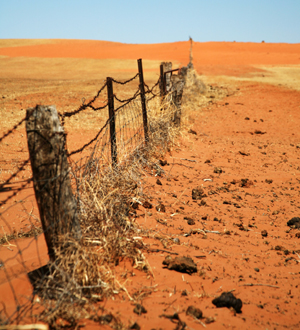Studies probe drought effect
 Experts have taken a deep dive into the scientific and social impacts of droughts; past, present and future.
Experts have taken a deep dive into the scientific and social impacts of droughts; past, present and future.
In a special issue of Science, Australian and international researchers looked at the causes of drought, the consequences for forests and soils, how drought relates to political conditions, and options for improving drought resistance in crops.
It is expected to be the most detailed investigation available into the causes and effects of current drought activity.
Dr Liz Hanna from the Australian National University (ANU) says the issues raised are of the utmost importance to the environmental movement.
“The rise of anthropogenic megadroughts threatens to undo millennia of human advancement,” she said.
“This series tells us a very important message - the rising intensity and frequency of droughts is a planetary phenomenon.
“This drought series makes it impossible to cling to the view that ‘Australia has always had droughts. This current/recent one will pass and then life will revert back to normal’.
“Drought intensification is a global trend with no signs of reversing, so the past is unlikely to solve Australia’s drought problems of the future.
“Our normal farming operations, normal water management operations and normal bushfire preparations will be deficient. We need to prevent the worst, mitigate now, and mitigate hard. And adapt to what is barrelling down upon us.”
Researcher Megan Mullen’s paper says fragmented water governance exacerbates inequities.
The experts say that recent mismanagement of the Murray-Darling Basin, examples of water theft and government-initiated erosion of compliance monitoring, enshrines unequal rights to Australians for a fundamental human need - water.
“Acceleration of global warming and deepening climate-induced rainfall variability across this continent make it imperative that scientific rigour, transparency and fairness are applied to national water management. Failure to do so heralds widespread water insecurity, disease outbreaks, abandonment of regions and town, and ultimately conflict. Prevention is the best and only sensible option,” Dr Hanna said.








 Print
Print